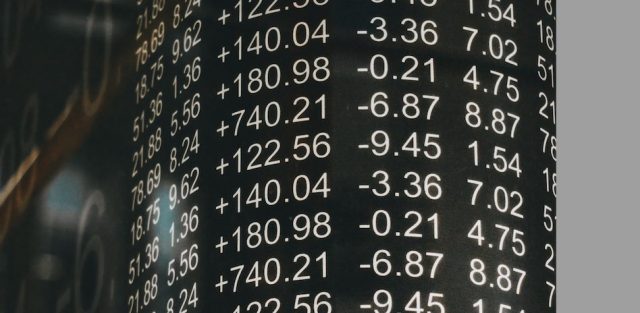| By Olivier de Berranger, CIO of LFDE
In the last few years whilst inflation was weak, it was primarily an issue for monetary policy, or at most, economic policy. But with the record highs seen recently (6.2% annual inflation in the US in October) it is becoming a burning and purely political issue. Joe Biden has even declared it his “top priority”, having barely mentioned it previously.
If the issue has suddenly thrust its way into the conversation, this is mainly because it was played down by central banks previously, and this is no longer possible. Since the start of the year, the US central bank Fed has been hammering home the message that inflation – which it considers transitory – should not be a cause for concern. Moreover, the market has followed this lead, holding long-term inflation expectations (inflation swaps) to 2.7% this year. But unlike the markets, the data has no fear of the Fed, and is pointing to high inflation on a fairly sustainable basis. The base effect from the 2020 lockdown will disappear, but even if energy prices decline substantially after the winter and supply chain issues are resolved rapidly (neither of which is expected), the inflationary momentum of wages and real estate underway in the US will be difficult to reverse. And this is particularly true in light of labour shortages.
The ECB is on the same trajectory. It was only during the press conference at the end of October that its President Christine Lagarde finally recognised the importance of the issue, before continuing to assert that no action was required. Households have ultimately had their concerns heard, though. In the US, the Republicans attacked Joe Biden’s infrastructure plan (that has finally been adopted) as a source of inflation in prices for raw materials. The President was forced to counterattack, presenting the plan as something that would ease inflation by improving the flow of goods. This is hardly a convincing argument, given that domestic transportation issues are not a real source of inflation currently. In Europe, the populist German newspaper Bild has caricatured Christine Lagarde as “Madame Inflation”, insensitive to the difficulties experienced by less well-off households.
Biden and ECB in a quandary
As inflation is now raging on all levels, Joe Biden is urging a forceful response. But what can he do? Firstly, he can put pressure on the Fed to tighten monetary conditions. But this is not how the institutions are supposed to work (even if it didn’t stop Trump from doing this during his time in office) in the other direction. Furthermore, it would not be effective given the independence of the Fed, nor in the interests of Biden’s economic stimulus plan and high debt levels.
Another option would be to reduce the import tariffs on Chinese goods that were imposed by Trump. But this would be a conciliatory move towards Beijing and is not on Biden’s cards. He could reduce his support for low earners, but this would mean breaking with his electorate a few months before the mid-term elections. Lastly, he could slow down the country’s energy transition and support oil production, which would run counter to his environmental commitment. In short, Biden is in a tight corner. And so is the ECB. It is committed to maintaining an accommodative stance for the long term and must at all costs support Italian debt to avoid weakening the euro.
So inflation is here to stay, and the political and monetary authorities can do nothing about it. Inflation is not easy to control, whether rising or falling. The economy is not a simple mechanism. It is an entity with its own momentum and cannot be regulated by a mere turn of the monetary screw. It is a political entity in the fullest sense, and not just an element of monetary policy.
More on Inflation on investESG.eu and specific hedging strategies on investRFP.com.
About LFDE: Since its foundation in 1991, LFDE has become one of the most important and dynamic asset managers in France. Core competencies: Investments in European and international listed companies. LFDE leverages its conviction-based management expertise to provide institutional investors, intermediaries and retail investors with sustainable solutions that add value to clients’ portfolios. LFDE is present in Germany, Spain, Italy, Switzerland and the Benelux countries with assets under management of €14 billion as of June 30, 2021. LFDE is a signatory to the UNPRI Principles and the Carbon Disclosure Project and is part of the Primonial Group, the independent leader in the development and management of investment solutions and investment ad
| investESG.eu is an independent and neutral platform dedicated to generating debate around ESG investing topics. All opinions expressed are those of the author or contributing source.



